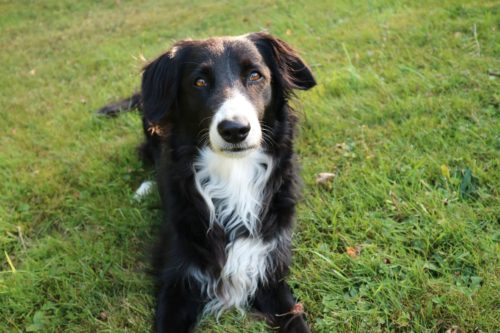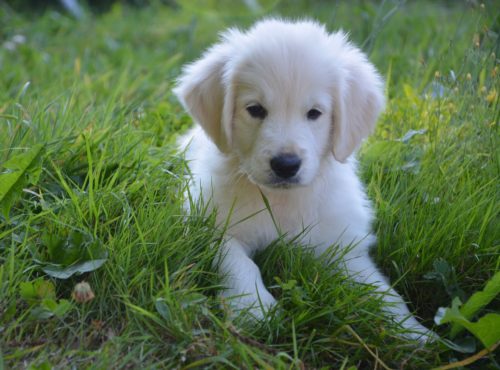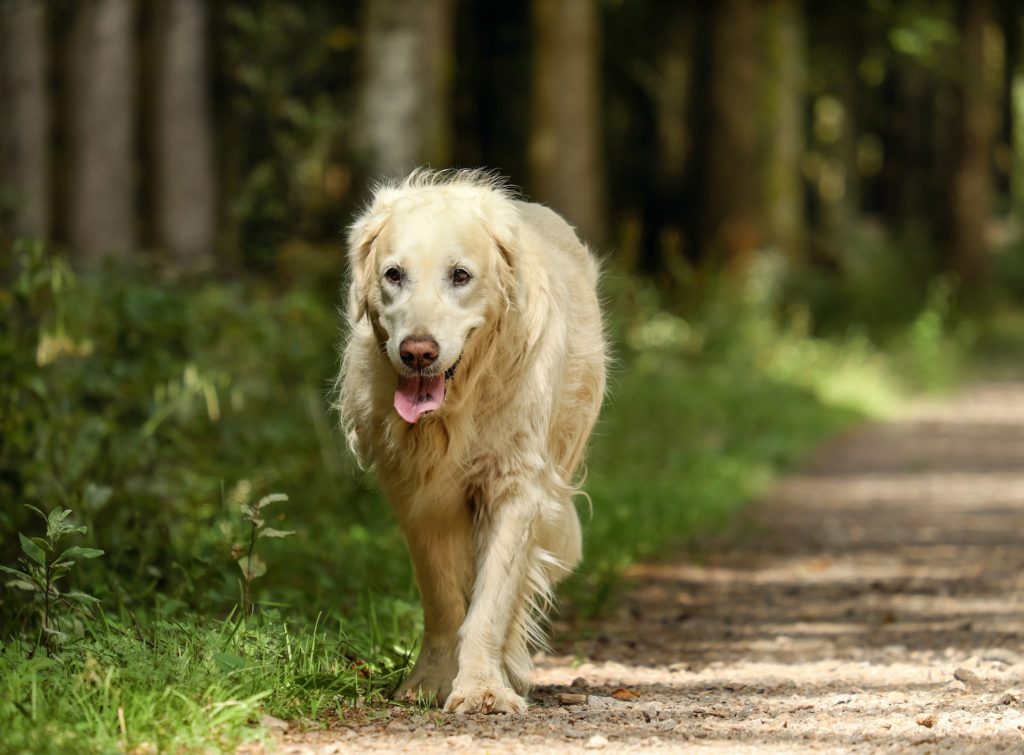One of the great things about America is the diversity of opinion. Different strokes for different folks, as they say. People argue about politics, movies, music, food and just about anything and everything under the sun. There are very few things that every American agrees on. In fact, some people don’t even like pizza! There is at least one thing, though, that you’ll be hard-pressed to find someone in favor of: diarrhea.
No one likes having diarrhea, and no one likes when their dogs have diarrhea. Aside from the obvious cons, like vomit-inducing smells, diarrhea is a sickness, and one that can be dangerous to your dog’s health – and in some cases, his life. But even though it can be dangerous, diarrhea is common – too common for your dog.
Diarrhea is common because it affects one of the most important and constantly functioning parts of a dog’s body – the canine digestive system. It’s also common because it has many causes. Determining why your dog has diarrhea can be difficult, as the digestive system is a very complex and very sensitive process.
What is Diarrhea?
In a nutshell, diarrhea is loose, watery and frequent bowel movements. Everyone – and every dog – gets it, and everyone is aware of the discomfort associated with it. In most cases, diarrhea last a few days. If it lasts longer, something may be wrong (aside from the diarrhea itself). Technically, diarrhea is present when a dog has three or more loose or liquid bowel movements in a single day.
The most common cause is an infection of the intestines due to virus, bacteria, or parasites – this is also called gastroenteritis, a catch-all term for issues of the digestive system and bowels. Bowel infections can be acquired from contaminated food or water, or directly from another dog who is infected. Since dogs are scavengers, they are very likely to catch a virus from contaminated food or animal carcasses that lead to diarrhea.
There are three loose categories of diarrhea in dogs: short duration watery diarrhea, short duration bloody diarrhea, and persistent/chronic diarrhea that lasts for two weeks or more. The short duration watery diarrhea is generally the result of a virus or infection. If blood is present in stools, there is likely an additional issue (internal bleeding, dysentery, etc.).
Chronic diarrhea can be caused by a number of issues, including non-infectious issues like lactose intolerance, irritable bowel syndrome, or inflammatory bowel disease. Stress and anxiety in dogs can play a role as well. Though dogs and humans both get diarrhea – and often for the same reasons – our digestive systems work a bit differently.
How Does a Dog’s Digestive System Work?

Dogs ingest and process foods in a different manner than humans do. It starts with the mouth. Humans chew food slowly, and the saliva in the mouth helps break down food before it reaches the esophagus.
A dog’s mouth is designed to bite and chew large chunks and swallow them quickly. This is a product of nature. In the wild, there’s no time to sit down for a nice proper meal with the dog family – it’s about survival. That’s why most dogs seem to inhale their food when you put it down for them. Their brains are wired to get what they can get, when they can get it. There’s no supermarket in the wild.
As a result, dogs have hinged jaws and large teeth that help them tear off meat and chew through fat and bone. Their saliva does not have time to help break down food before they swallow it, making the stomach more vital to breaking down food. After food passes through a dog’s esophagus and reaches the stomach, it is processed by high levels of hydrochloric acid, which allows for the breakdown of the large pieces of protein and bone that dogs typically ingest.
Food that cannot be broken down by the stomach acid is rejected with the dog’s natural regurgitation instinct. After food has been processed in the stomach, it then passes to the small intestine in liquid form, where the food is completely digested and the food is converted into nutrients that fuel the dog’s body. Any food that has not been fully digested in the small intestine moves through the large intestine, where it is converted to waste and passed through the rectum as feces.
Like other mammals, the digestive process for dogs takes approximately 8-10 hours. Dogs may also experience gas and flatulence, but it is not as common as it is in humans, and may be an indicator that something in their diet does not agree with their system.
Causes of Diarrhea in Dogs
If your dog is experiencing diarrhea, there may be several different causes. The dog’s digestive system is sensitive, so multiple factors come into play. Diarrhea in dogs can be minor, or it can be something more severe. It can last a few hours, a few days, or in serious cases, a few weeks. Some of the most common causes of diarrhea in dogs are:
Eating Something Bad
Dogs will eat just about anything. Whether it’s the dog food you buy them, picking food out of your garbage cans, finding food and trash around the neighborhood, or consuming those dead animals they are happy to show you they’ve found, dogs eat things that no human would ever consider consuming. A dog wouldn’t turn his nose up at a dead squirrel, let alone slightly undercooked beef.
…You can blame nature for that. Dogs are hard-wired to find and consume food for survival. Their bodies and digestive systems are built to handle a lot of poor food, but every now and again, a dog’s digestive system meets its match. Veterinarians have a term for diarrhea caused by eating the wrong thing: garbage toxicosis, better known as “garbage gut.” Keeping your dog from eating something bad is nearly impossible to do, but limiting it will help your dog avoid diarrhea, and help you avoid cleaning it up.
Eating Too Much
Eating the wrong thing isn’t the only way a dog can get “garbage gut.” Eating too much can result in diarrhea as well. Overstuffing can negatively affect the dog’s ability to properly digest food, throwing a wrench in the normal digestive process. This can result in the body attempting to adjust – and end up causing diarrhea.

Food Intolerance and Food Allergies
Just like humans, certain dogs can’t handle certain foods. Food allergies show the characteristic symptoms of itching and skin problems associated with other canine allergies, along with diarrhea. Food intolerances can cause diarrhea or vomiting, but do not create an allergic response.
Food allergies affect both male and female dogs equally. They can develop as early as five months and as late as 12 years. Certain foods are more likely to cause food allergies in dogs, including: beef, dairy products, chicken, lamb, fish, chicken eggs, corn, wheat, and soy. Unfortunately, these are also the most common ingredients in popular dog foods. Diarrhea from food intolerance can happen at any time, depending on what the dog has ingested.
Ingestion of a Foreign Substance
As discussed, dogs aren’t picky when it comes to food. In some cases, it doesn’t even need to be food. Many dogs will eat just about anything. Socks, underwear, toys, food wrappers…the list goes on. Unsurprisingly, a dog’s digestive system is not able to properly digest non-food items, which can lead to diarrhea.
Ingestion of Toxins
There are a variety of plants that are toxic to dogs. If your dog ingests one of these toxic plats, or any other poisonous substance, he will likely get diarrhea – and potentially bad diarrhea. Plants that are toxic to dogs include: Autumn Crocus, Azaleas, Daffodils, Tulips, Sago Palms, Oleanders and Amaryllis, among others.
Parasites
Dogs are particularly susceptible to certain parasites, including Roundworms, Hookworms, Whipworms, Coccidian, and Giardia. These parasites generally affect puppies and dogs with poor immune systems. They can cause diarrhea – and they can be very dangerous to your dog’s health, depending on how long they have been in his system.
Along with diarrhea, these parasites can cause abdominal pain, vomiting, loss of appetite, severe weight loss, or even death. When the weather starts to get warm, these parasites become more widespread.
Intestinal Viral Infection (Rotavirus)
Rotavirus causes inflammation of the intestines, which spurs diarrhea. More severe cases can cause damage to the intestinal walls. Rotavirus is the leading cause of diarrhea in dogs. Puppies are more prone to rotavirus infections, but dogs of any age can contract it.
Diarrhea is the main symptom of Rotavirus, normally lasting from one to four days. The virus is transmitted through contact with contaminated fecal matter. Dogs can pick up the virus at dog parks or around the neighborhood, and it’s almost unavoidable. Stressed dogs and dogs with weak immune systems are much more likely to contract the virus.
Infections

Certain canine infections, including Parvovirus, Distemper and Coronavirus, can spread their corresponding viruses to the dog’s body, causing diarrhea. These viruses work similarly to the Rotavirus, but the diseases they are associated with are far more dangerous for dogs.
Stress
Dogs are emotional and can become very stressed out. Whether they’re barking at an intruder, running from the vacuum, or experiencing a traumatic situation, mental stress affects the entire body, and can upset the balance of the dog’s digestive system, leading to diarrhea.
Medications
Almost every dog, at some point in their lives, will take medication for one illness or another. Most of these dogs will at some point experience a less than favorable reaction to one of these medications. It’s usually not a big deal – your vet will most likely simply shift to another medication – but it does cause diarrhea. In fact, diarrhea is the best way to discern if your dog is having a negative reaction to his medication.
Is Diarrhea Dangerous to Dogs?
Common diarrhea – the kind that last just a few days or less – is not dangerous to dogs. It’s uncomfortable, annoying, and sometimes even painful, but it’s nothing to worry about. More severe diarrhea though, can be very dangerous. The longer diarrhea occurs, the more dehydrated a dog will become. If the diarrhea continues unabated, it can even result in death.
After all, millions of human beings died from dysentery – which is basically non-stop diarrhea. There is also a type of diarrhea called hemorrhagic gastroenteritis that is a potentially life-threatening intestinal condition. If your dog has a sudden onset of bloody, watery diarrhea combined with vomiting, take him to your vet immediately.
What You Should Do If Your Dog Has Diarrhea
If your dog starts having diarrhea, the first thing to do is clean it up. The next thing to do is keep an eye on him to determine how severe the problem is. There are things you can do at home to help him overcome a normal bout of diarrhea, including making sure he has plenty of clean water, and encouraging him to drink it. This will help ensure your dog does not become dehydrated.
Diluted chicken or beef broth added to the water can make it more palatable, and help ease the diarrhea. Feed your dog white meat chicken with white rice. The chicken will ensure he gets protein, and the rice will help turn his stool back into a normal consistency. If your dog’s diarrhea goes away after a couple of days, there’s nothing to worry about. But if the symptoms continue to get worse, it’s time to see a vet.
If you notice that your dog is lethargic, is vomiting, has blood in his stools or seems to be in pain, contact an emergency vet center and immediately take him in for diagnosis. Diarrhea, for the most part, is not a serious affair. It’s awful to deal with for both you and your dog, but it’s rarely fatal – assuming you identify and treat chronic diarrhea early.




